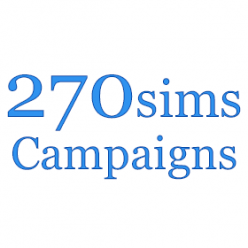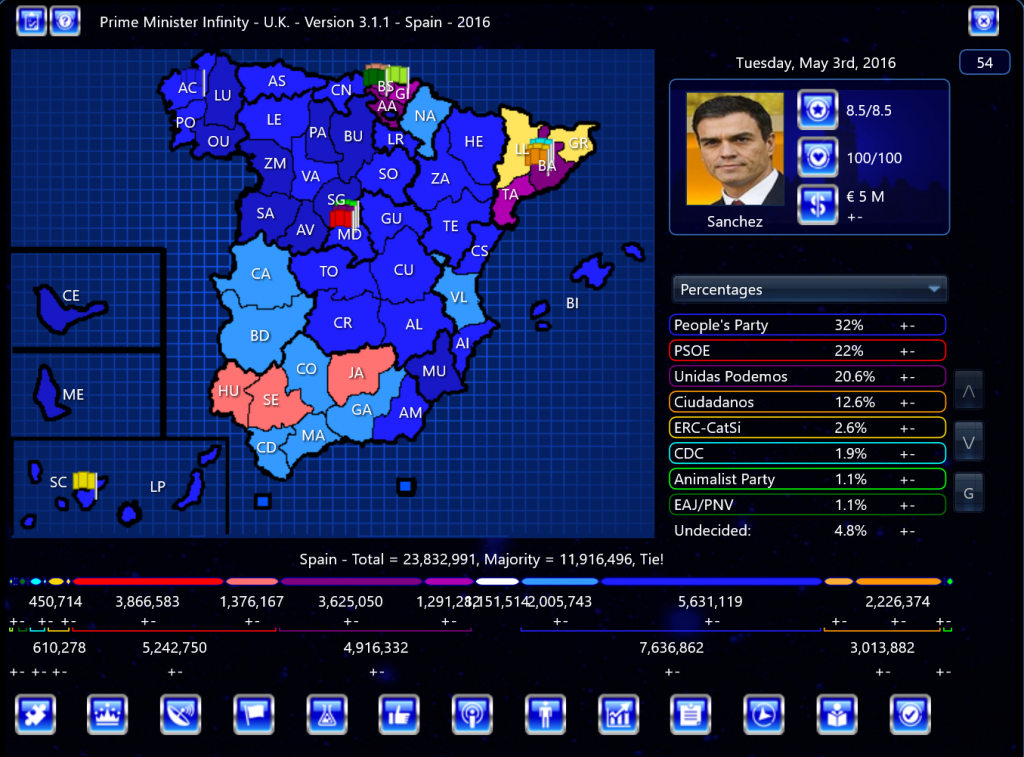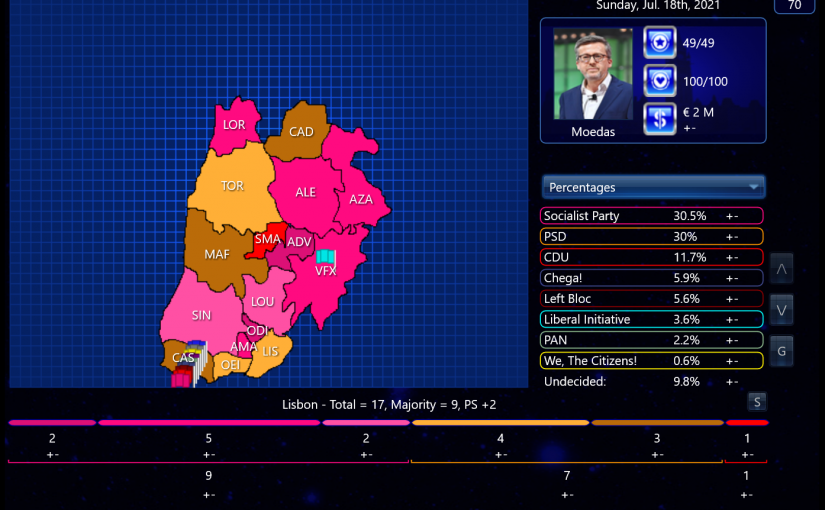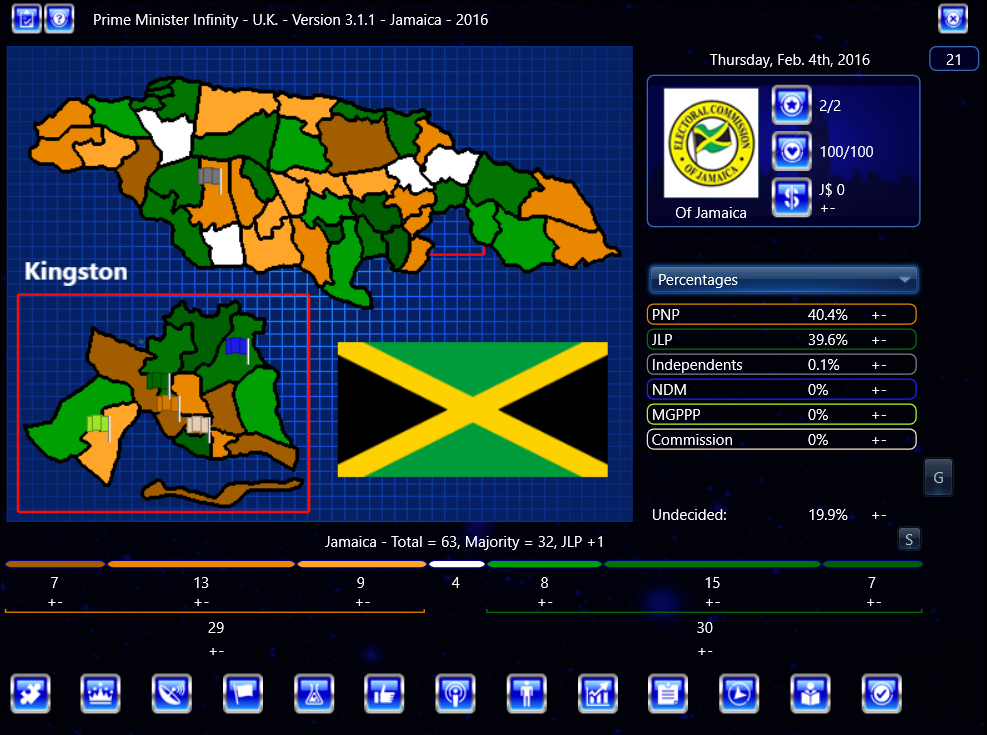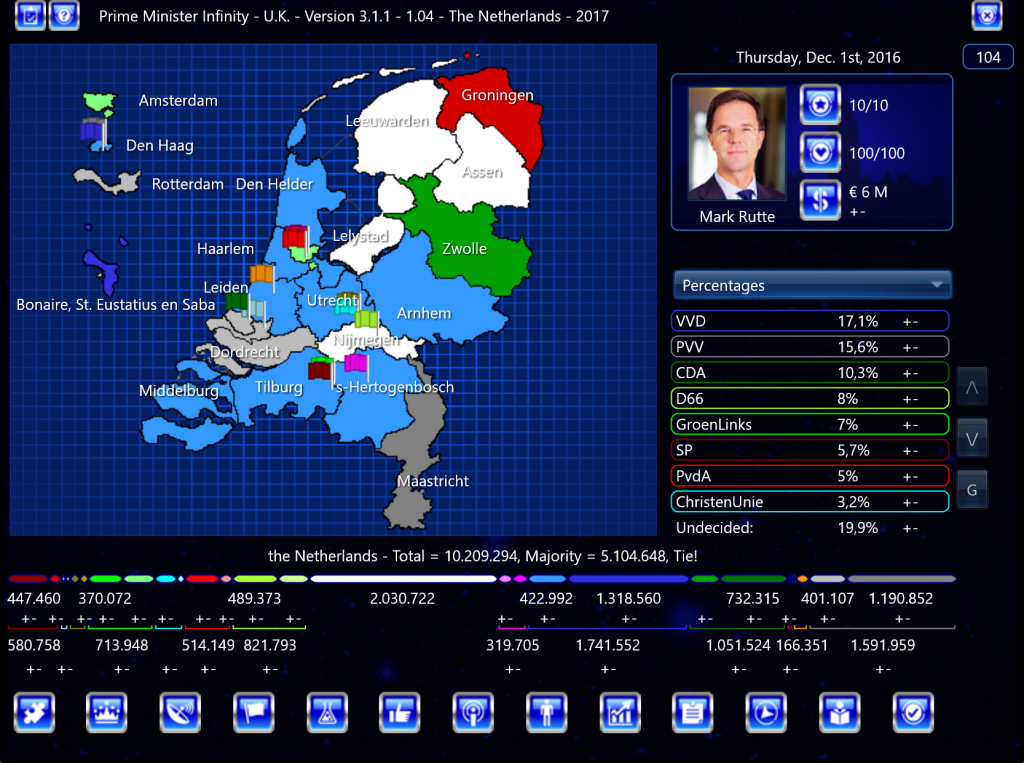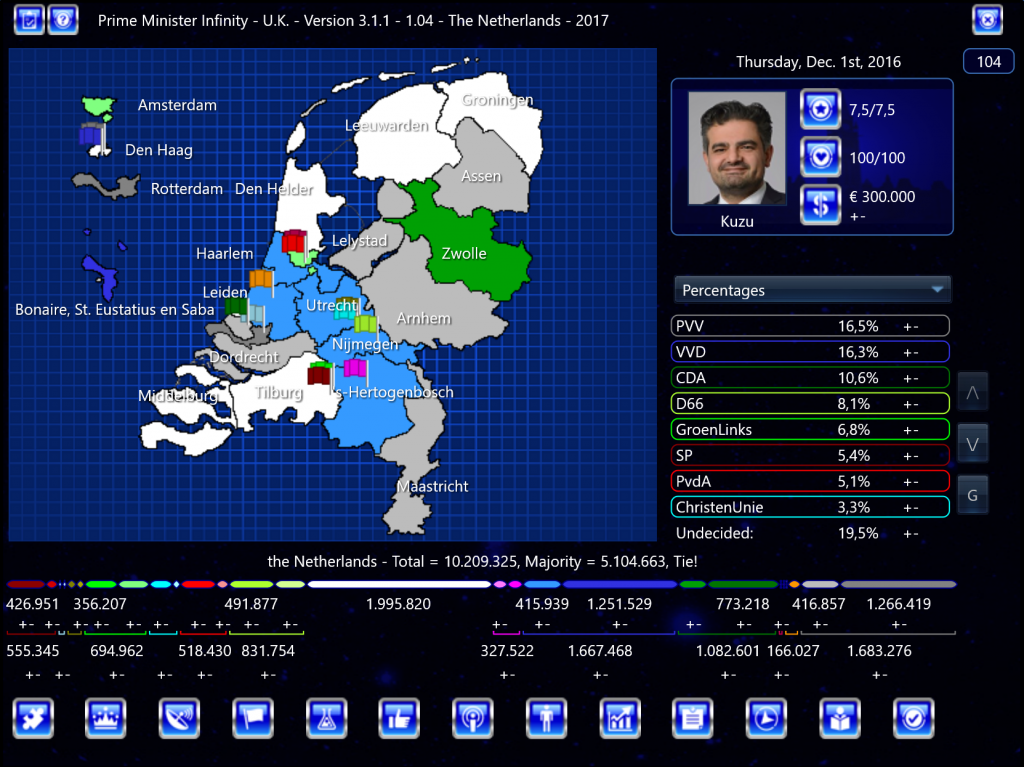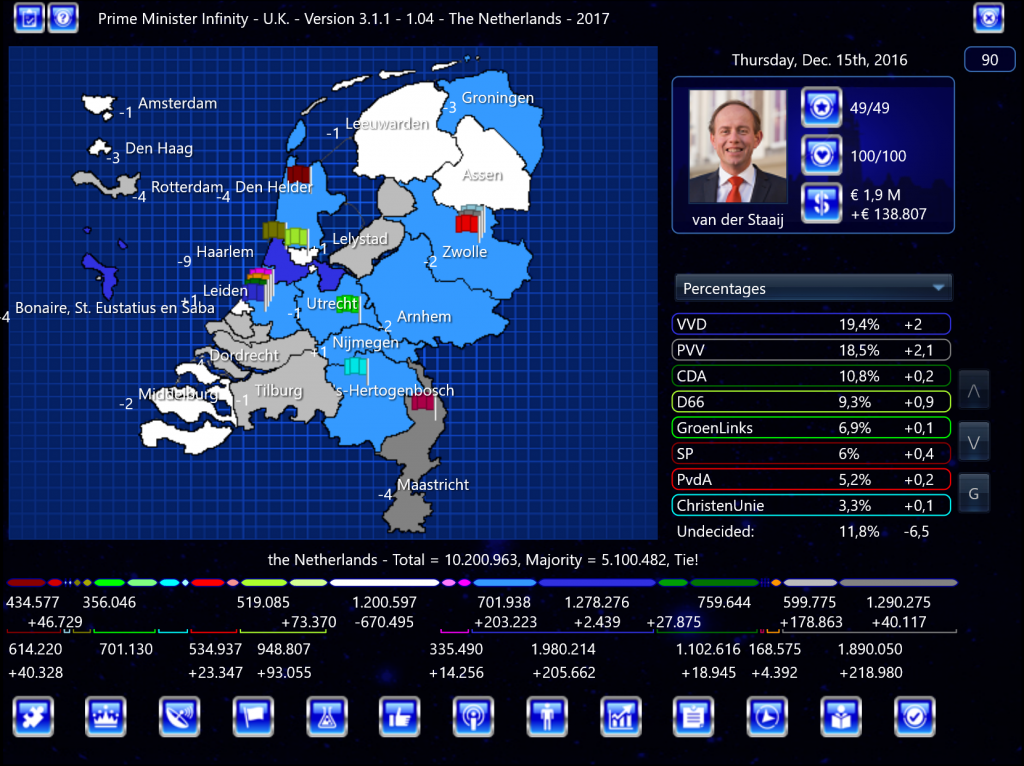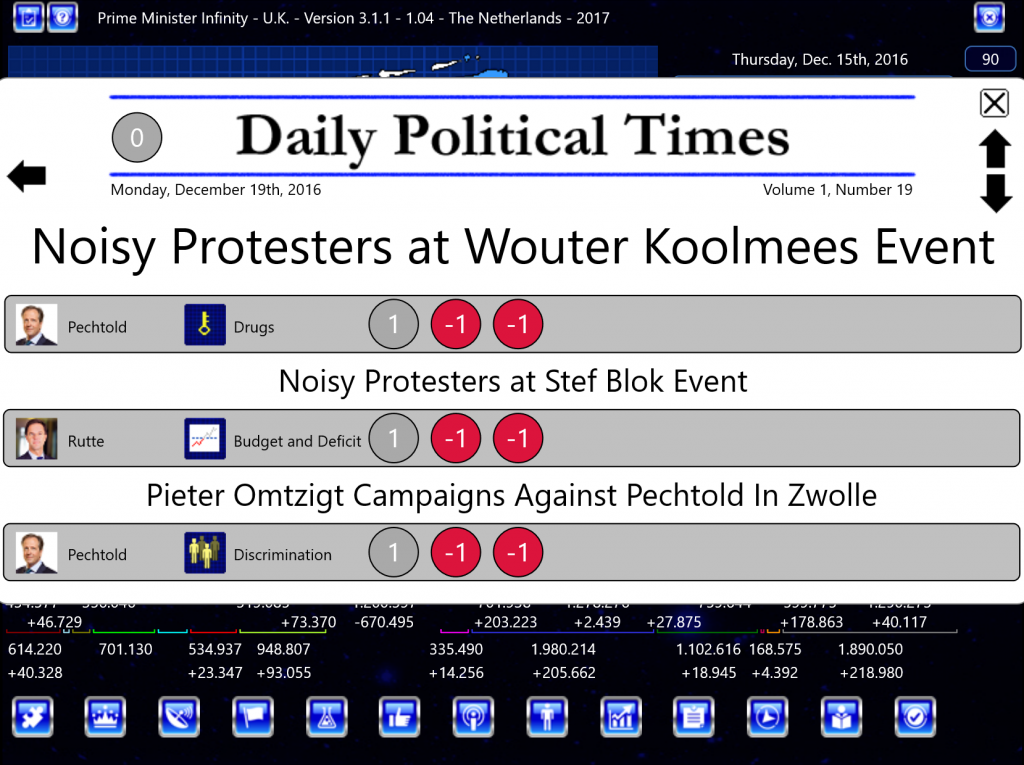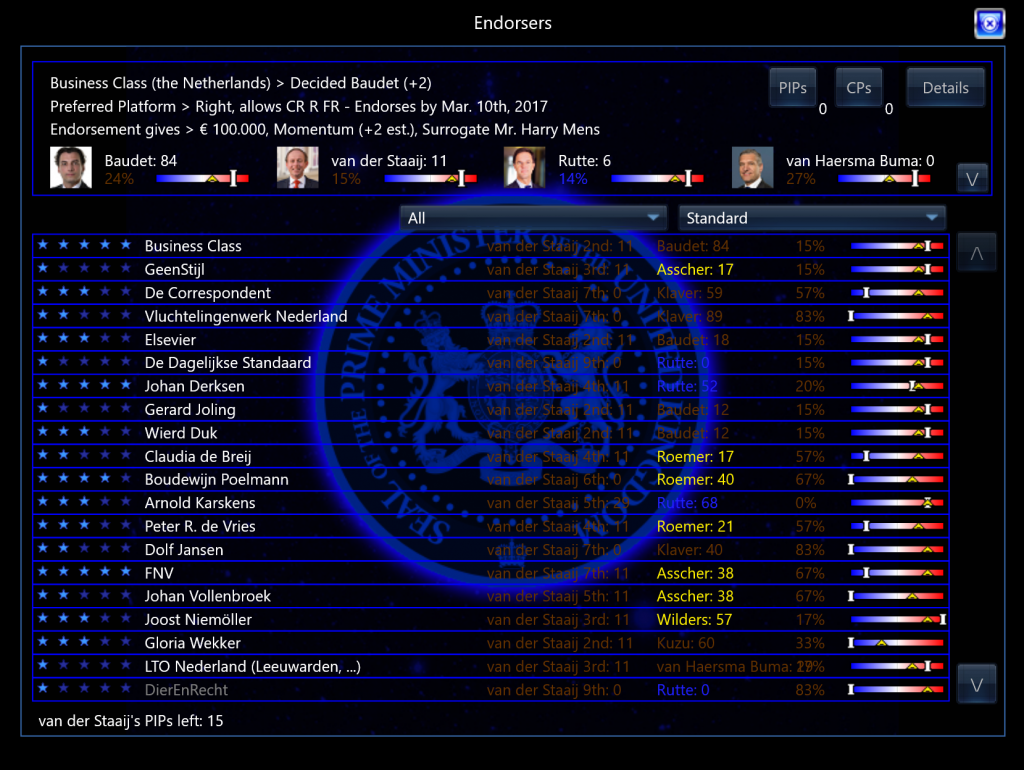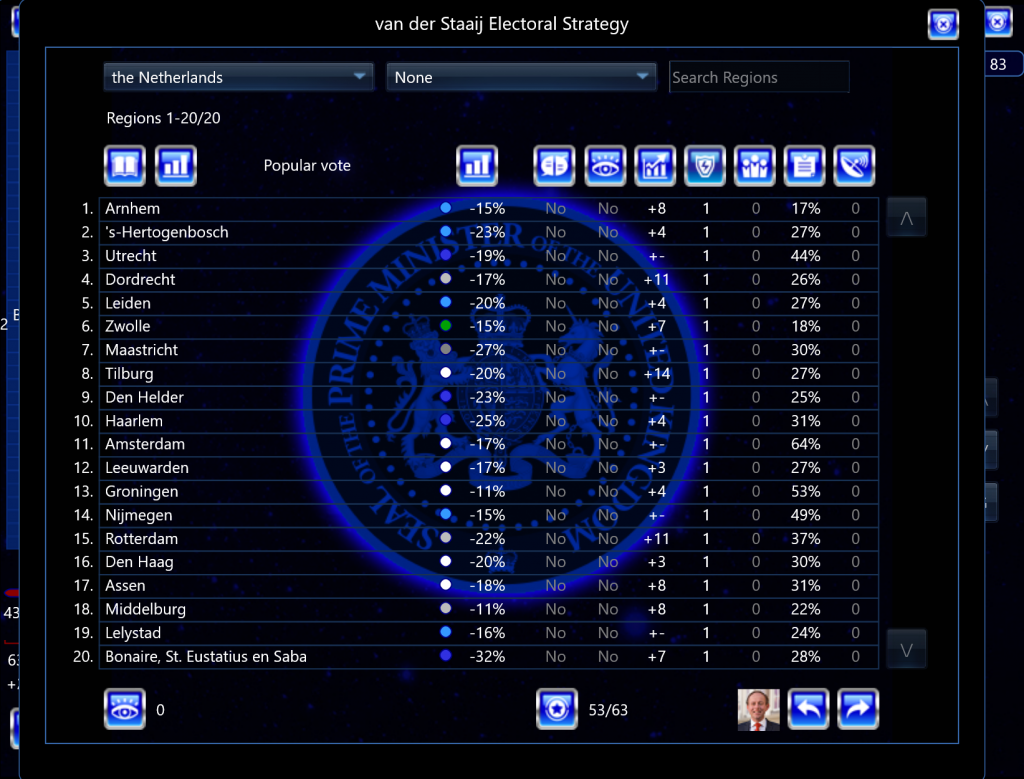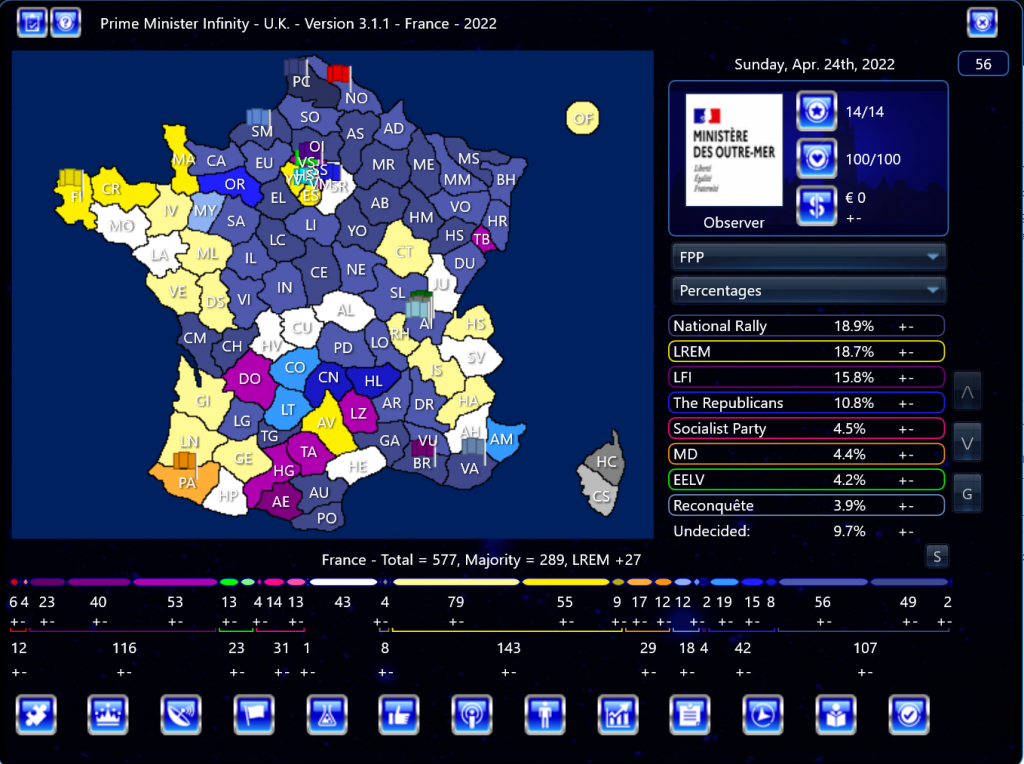
Coming off Macron’s victory in the 2022 presidential election, his alliance, Ensemble, is hopeful of maintaining their parliamentary majority in order to push Macron’s agenda through, but, Ensemble faces strong resistance from Jean-Luc Melenchon’s NUPES alliance, hoping to capitalize on unenthusiastic left wing Macron voters, and Marine Le Pen’s National Rally, hoping to dethrone Ensemble from the far right. With the war in the Ukraine, the fallout of covid, the cost of living crisis and more being on the minds of voters, who will come out on top and become the next Prime Minister of France?
NOTE: France has alot of regions, so expect this scenario to run slower than an average PMI game.
Parties and Candidates:
La République En Marche! (Ensemble) – Richard Ferrand
Democratic Movement (Ensemble) – François Bayrou
Horizons (Ensemble) – Édouard Philippe
The Republicans (UDC) – Christian Jacob
Union of Democrats and Independents (UDC) – Jean-Christophe Lagarde
La France Insoumise (NUPES) – Jean-Luc Mélenchon
Europe Ecology – The Greens (NUPES) – Julien Bayou
Socialist Party (NUPES) – Olivier Faure
French Communist Party (NUPES) – Fabien Roussel
National Rally – Marine Le Pen
Radical Party of the Left – Guillaume Lacroix
Debout la France (UPF) – Nicolas Dupont-Aignan
The Patriots (UPF) – Florian Philippot
Reconquête – Eric Zemmour
Independents
